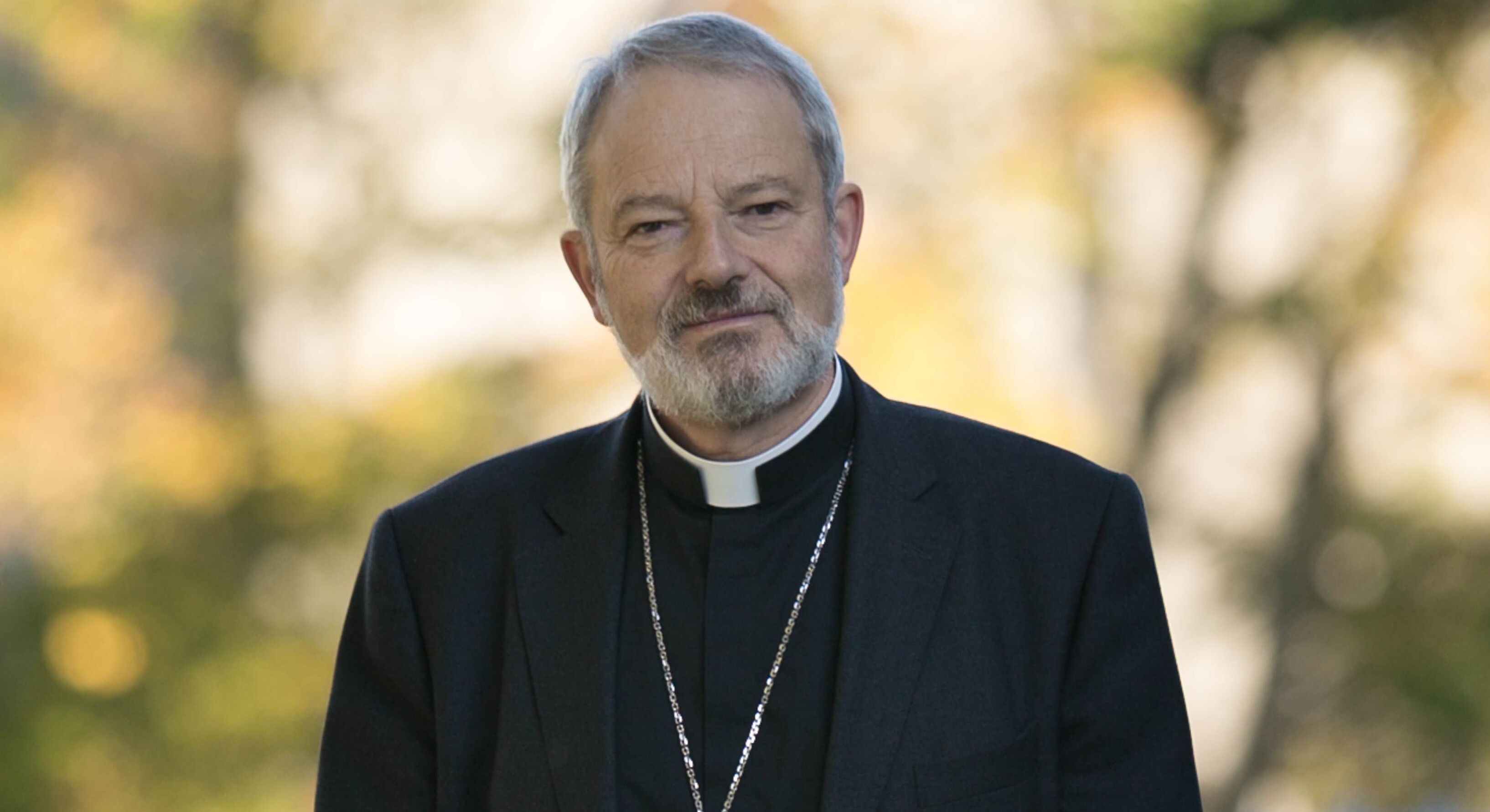| Bishop Doran said, “while I was at the World Youth Day in Lisbon, I began to give some thought to the Scripture readings for today’s Mass and to the theme on which I have been asked to speak: ‘Stewarding Creation’. There were hundreds of thousands of young people in Lisbon, from every corner of the earth. Within our own group we had a few who went out of their way to engage in conversation with young people they had never met before and might never meet again. There was a lovely joyful atmosphere in the streets. At times, also, there was a real spirit of prayerfulness. As the week went on, the police visibly relaxed, and I have seen this happen at other World Youth Days. There was something very wholesome about it all.
“Many of the big gatherings were in Parque Eduardo which was close to the flight-path of the planes coming in to land in Lisbon Airport, and there were quite a lot of them. Meanwhile, to the north and south of Lisbon, wildfires blazed and, when we went to Fatima later that week, the sky behind the Basilica was dark with smoke.
“In his 2015 encyclical letter Laudato Si’ (Praised Be) on the care of the earth, Pope Francis frequently comments that “everything is connected”. Was there a connection between the presence of so many young people in Lisbon, the number of flights, the higher-than-normal temperatures and the forest fires? The science would suggest that there may well be. But like most things, it is not as simple as all that. Simplistic solutions and knee-jerk reactions, more often than not, make problems worse.
“We could, of course, cancel international gatherings, ban tourism and tell everyone to stay at home in their own place. In that scenario, we would still be sharing the same universe, facing many of the same challenges, but without the benefit of knowing one another as brothers and sisters. We would be ‘us’ and ‘them’.
“The same Pope Francis, who told us that we must care for the earth, which is our common home, has repeatedly urged us to build understanding and fraternity through dialogue in a world without rigid borders. Humanity has always been good at building walls; not just physical walls, but economic and political walls; religious walls and cultural walls, to keep people apart.
“In Laudato Si’, Pope Francis describes the earth as ‘our common home’. It is not just my home, or your home, it is our home. How we care for and live together in our common home depends largely on our respect for one another as one human family under God. That includes the elderly and the children, those who live near us and those who live farther away; those who are as yet unborn, but who will inherit what we build or, indeed, the mess we leave behind us.
“People are inclined to dismiss the Creation narratives in the book of Genesis as if they were just some kind of bed-time story for children. They were never meant to be a historical account of what happened over the course of seven days. The passages about creation are poetic reflections, which express the faith of the people of Israel in a good and intelligent Creator. These were people who saw all around them the signs that God intended the earth to be self-sustaining and to serve the needs of humanity, and that he had created humans in his own image for relationship with him.
“Pope Francis warns us not to misunderstand what God intended in giving humanity dominion over the earth (Genesis 1:28). In the second Chapter of Genesis, we read that: ‘God placed man in the Garden of Eden to cultivate it and to care for it” (Gen. 2.15). ‘This implies’, Pope Francis says, ‘a relationship of mutual responsibility between human beings and nature. Each community can take from the bounty of the earth whatever it needs for subsistence, but it also has the duty to protect the earth and to ensure its fruitfulness for coming generations.’ (LS #67).
“The Church has always recognised the right of ownership of property and the legitimate boundaries of nations but, from a moral point of view, nothing belongs to us absolutely. Everything is held in trust. Neither can we turn back the pages of history. Our economy these days is far more global than it ever was before. Our actions and the decisions that we make as consumers on one side of the earth, have consequences for producers and workers on other continents. These consequences can be both economic and environmental, because everything is connected. One person’s poverty is connected with another person’s wealth.
“Stewards make an important contribution to many of our gatherings, especially at sporting events and in our Churches. Here in Knock Shrine, we have the Cairde Mhuire and the VAKS. I think of stewards as looking after public safety and finding seats for people. They themselves are usually the last ones to be seated. Perhaps this is a good image for what it means for us to be ‘stewards of creation’. It is our responsibility to see to it that there is a place for everyone, and to give particular attention to those who might be vulnerable or at risk. We are not all the same in this. Some of us, by virtue of our role and our responsibilities, can make a small difference on a global level. Others can make a big difference in our own local community. The prophet Isaiah tells us how to go about it: ‘have a care for justice; act with integrity’.”
ENDS |


